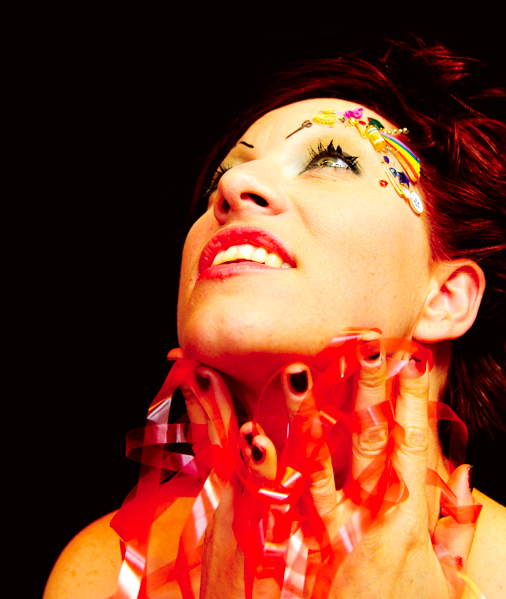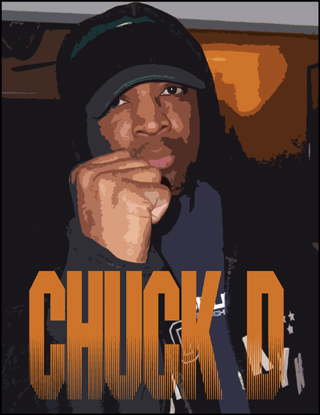
Amanda Palmer is far from a household name, however, she’s as relevant to the music industry as any big name artist. She tours constantly, sells plenty of merchandise, and most importantly is adored by her fans. Even in this post “In Rainbows” music industry, within indie music circles, Amanda’s a hero and an inspiration to aspiring artists. Online, she’s become the poster child for the right way to use social media if you’re an artist. She used that connection to further strengthen her bond with fans. After experiencing, first hand, the effectiveness of connecting directly with her followers, she found that there was no longer a need for a middleman- the record label- between her and her audience. For the last year or so, she’s embarked on a campaign to be dropped from powerhouse label Roadrunner/Warner Records— a feat that is not easily accomplished, regardless, she prevailed.
How was she able to accomplish all of this? Well, the short story is by becoming a one-of-a-kind talent. However, this wasn’t enough. Label rosters are full of talented artists. Some of these artists sit dormant on shelves waiting for their turn in queue to receive, if their lucky, a window of attention from their labels. Amanda didn’t wait. She put herself and her talent in front of her fans in person and online. She also brought something new to the proverbial plate- the stage and the studio. She created her own world of music, Brechtian Punk Carabret, where she, of course, reigned as queen. She was so successful in her own space, that there was no substitute for fans. Beyond that, she’s a savvy communicator. Amanda understood the power of the Net, and all of ways to connect that are found within. She used these tools aka “social media” to keep her audience abreast of her whereabouts and her thoughts. She’d set up impromptu meetings and performances- playing an intimate set to a small group of loyal fans before the main show. She bridged the gap between networking online and the real social networking that only happens on the physical plane.
Amanda penned a song entitled “Please Drop Me,” a Dear John letter of sorts, about her severed relationship with her label. She took this plea to be released from her contractual obligations to her the record label directly to the people. On at least one show, before performing the song, she asked her audience to record a video of the performance and post it online, they obliged. While on the road, she asked fans to chip-in to cover expenses for a performance troupe that performed and traveled with her, they answered the call. She reached out to them for places to stay while on the road, and they provided. She even opened up a piece of her merchandising with PostWarTrade.com, an online outlet for fans to sell their own Amanda merch to other fans. She opened the door and wholeheartedly involved fans in her life as an artist.
The direct connection that Amanda cultivated with her audience has made the services of a label obsolete, at least in her case. The label finally relented, dropping Amanda into the hands of her fans. On the day of this coup, Amanda announced that for the first time since signing with the label, that she can now control her music. She celebrated by offering her music to the people, by way of a free download of her song “The Truth,” including images of the session and lyrics. Within the announcement posted on her blog, she writes, “if you should feel inclined to ‘donate’ more than the bare minimum (ZERO/FREE), you can do that too. ?even if you only donate a symbolic dollar, i’ll see every single cent of it (after paypal transaction fees, of course).” There is no doubt her audience will respond.
The Amanda Palmer Music Industry Interview:
First, congrats on finally getting out of your contract with Roadrunner. Can you discuss some of the ways that this freedom will help your career grow?
I’m hoping to just release things more quickly, and as I fucking feel like it. I’d like to put all of my music out for free and/or for donation, digitally, and keep the hard-copy audio stuff for the fans. This is how I’ve sort of always wanted things to function. We’ll see how it works…I’m plotting a Radiohead covers record as we speak.
Why do you feel that Roadrunner stopped promoting your record? Was it an issue of the game changing all around or just other priorities?
It was very simple…in the case of the second Dolls album, they stopped promoting simply because the album dropped in sales the second week and they were terrified of wasting resources on a record that would tank. In the case of my solo record, they pulled out even before the album was released, because they decided internally that the record wasn’t commercial enough. In both cases I see their decisions as very sad, but I’m not too concerned with raking over the past.
Did reaching out to your fans (for example the song “Please Drop Me”) helped you be released on better terms than if your fans weren’t contacting the label?
I assume it did. I made it my priority for a while to be a huge pain in the ass.
Can you describe the connection that you have to your audience?
Yes. It’s real, and I’m actually deeply grateful and feel indebted to anyone who spends time and energy paying attention to my art. I never take it for granted. And I feel extraordinarily lucky that my fans tend to be kind, funny and intelligent. This makes staying in their homes much more enjoyable.
Describe your experience staying with fans on a recent tour versus staying in hotels?
Sure. I’ve been blogging and twittering and generally reaching out to fans for crashspace for years…the Internet has just made it really efficient. I don’t always prefer staying with fans. Sometimes it’s really nice to be completely alone and have a door to close, but when you’ve got 5 to 10 people on tour, which I often do, paying for that many hotel rooms just isn’t possible when the tour can’t pay for it. And, staying with fans is, for the most part, way more fun, if not more educational. Plus, they give us wine and let us pet their animals. Hotels never do that.
In regards to your open letter to Roadrunner, you were very gracious and thanked them for taking an initial chance on you and the Dresden Dolls. In many ways you’ve been an inspiration and a model for artists to go at it without a label. What advice would you have for new artists that are starting out (other than getting out in front of audiences and using social media to connect) and seeking to build awareness for themselves?
Yes, don’t sacrifice your content. We’re all victims of the endless connection nowadays. Especially me. Your artwork can suffer when there are always tempting things to do on the net: new fans to find, new fun ways to promote yourself and link into the endless social party. Your music has to be GOOD. Don’t forget to unplug, get real, drink without twittering, and find god, etc.
Can you describe the role of retail for you as an artist?
For hard copy music? Dying, almost dead.
Will you still work with a traditional distributor for physical music products?
In certain countries it’s still alive and well. I’ll do what I need to do. As long as stores still exist, I’ll put records in them, but I’m not deluded. Music will live in the cloud.
Myspace, Facebook, blogs, Twitter, what’s next?
We are all going to wirelessly plug into each others’ hearts and never talk.
Considering that many labels are approaching the signing of artists in a 360-type situation, do you have advice for artists that may not be business savvy or entrepreneurial, and are seeking to be signed to a label?
Don’t sign away your merchandising or publishing. Do not sign for more than one album. Also, floss.
What is the biggest lesson that you’ve learned from your experience on Roadrunner?
That money is money and art is art. People trying to make money from art are not trying to make – or support – art. I somehow had these things confused a bit.
Can you provide one secret to “making it” in the music business?
Work hard and have no plan B. If you have a plan B, you’ll fall back on it, guaranteed.
Do you feel that digital music online will provide a significant amount of revenue in the future, or will it be used as a promotional tool and loss leader for the sale of merch and concert tickets?
Hard to say. I don’t want to call that one. I think we’ll go to a system of patronage where a lot of exchange will be symbolic, and include digital content.
What’s your vision of the future of the music industry?
We’ll all be sitting and feeling very lonely on the moon in several years. We will be plugged into one giant stereo, but we will all have different headphones. The stereo will play nothing but Radiohead. The end.
I. Vasquetelle





This is what most artists should be doing right now, unless they are trying to make mass approach type music.
Dazzling article . Will definitely copy it to my blog.Thanks.
Wait, Business Man: “copy it to your blog?”. Are you being serious? Are you not aware that stealing another writer’s work is I don’t know, extremely lame, unethical, bordering on evil??